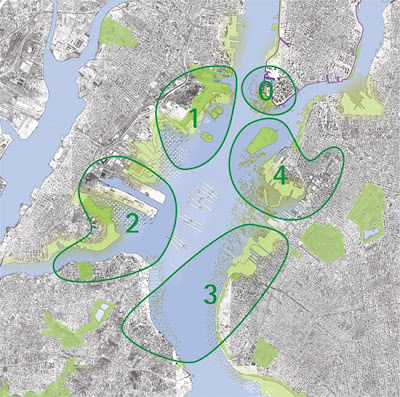Thursday, July 22, 2010
Saturday, July 10, 2010
RE-ACTIVATE to be published by IDEALS in August
ABSTRACT
Modern communication technologies both support and complicate social interaction in public spaces. This thesis, RE-ACTIVATE, is first inspired by observing new modes of social interaction that are aided by tools like the smart phone, and it examines the shifting notion of “place” towards an online environment. Considering that architecture has historically served as a framework for social activity, and that there has traditionally been an interwoven relationship between architecture and technology, RE-ACTIVATE urges the integration of architecture with media technology as a strategy for reinvigorating urban spaces and spurring social interaction.
The thesis proceeds by engaging in a series of design explorations and producing an array of built prototypes embedded with programmable Arduino microprocessors and proximity sensors. These modular prototypes are designed as components for buildings or installations, which serve to intrigue the senses, imbed information, create spaces, incorporate ubiquitous computing and interface with the Internet.
Modern communication technologies both support and complicate social interaction in public spaces. This thesis, RE-ACTIVATE, is first inspired by observing new modes of social interaction that are aided by tools like the smart phone, and it examines the shifting notion of “place” towards an online environment. Considering that architecture has historically served as a framework for social activity, and that there has traditionally been an interwoven relationship between architecture and technology, RE-ACTIVATE urges the integration of architecture with media technology as a strategy for reinvigorating urban spaces and spurring social interaction.
The thesis proceeds by engaging in a series of design explorations and producing an array of built prototypes embedded with programmable Arduino microprocessors and proximity sensors. These modular prototypes are designed as components for buildings or installations, which serve to intrigue the senses, imbed information, create spaces, incorporate ubiquitous computing and interface with the Internet.
Labels:
arduino,
interactive architecture,
technology
Saturday, July 3, 2010
1:1 cover draft 1 and 2
Friday, July 2, 2010
Rising Currents @ MOMA
'rising currents: projects for a new york's waterfront' is a exhibition to address one of the most urgent challenges facing new york city: rising sea-level resulting from global climate change.
Five proposals for five zones in NY area:
zone 0: stephen cassell, adam yarinsky, architecture research office
zone 1: paul lewis, marc tsurumaki, and david j. lewis of LTL architects
zone 2: matthew baird of matthew baird architects
zone 3: eric bunge and mimi hoang of nArchitects
zone 4: kate orff of SCAPE Studio
Five proposals for five zones in NY area:

zone 0: stephen cassell, adam yarinsky, architecture research office
zone 1: paul lewis, marc tsurumaki, and david j. lewis of LTL architects
zone 2: matthew baird of matthew baird architects
zone 3: eric bunge and mimi hoang of nArchitects
zone 4: kate orff of SCAPE Studio
Subscribe to:
Comments (Atom)











